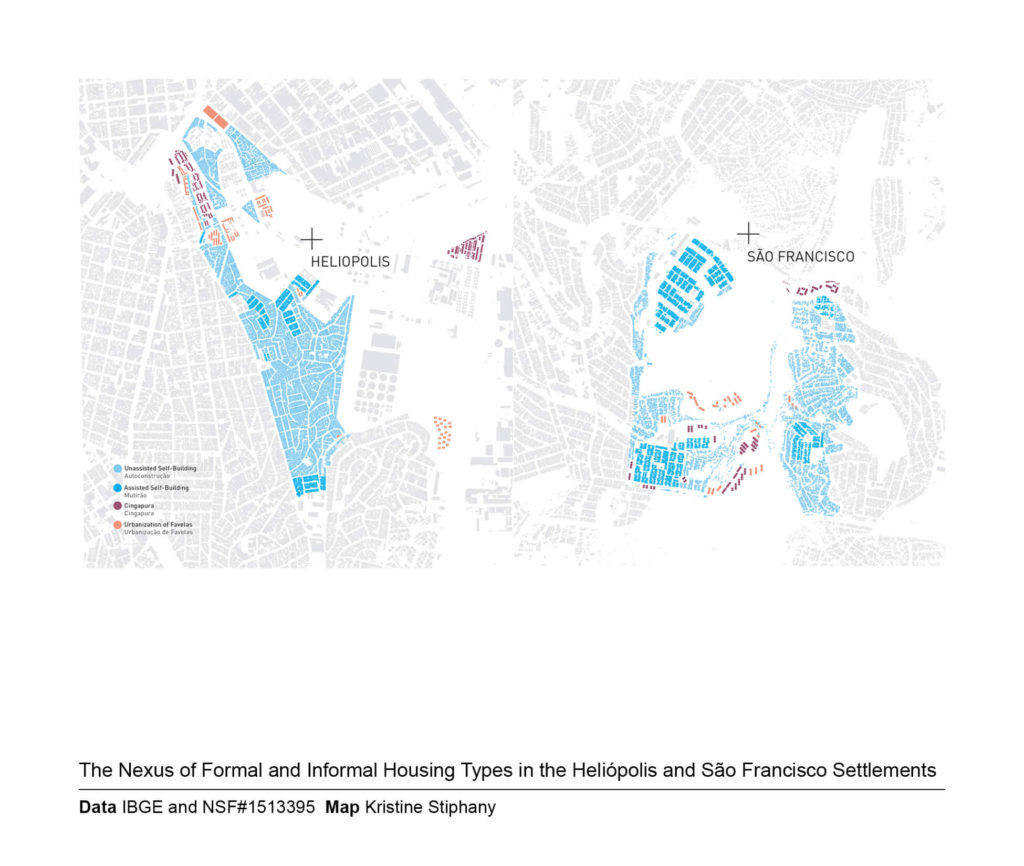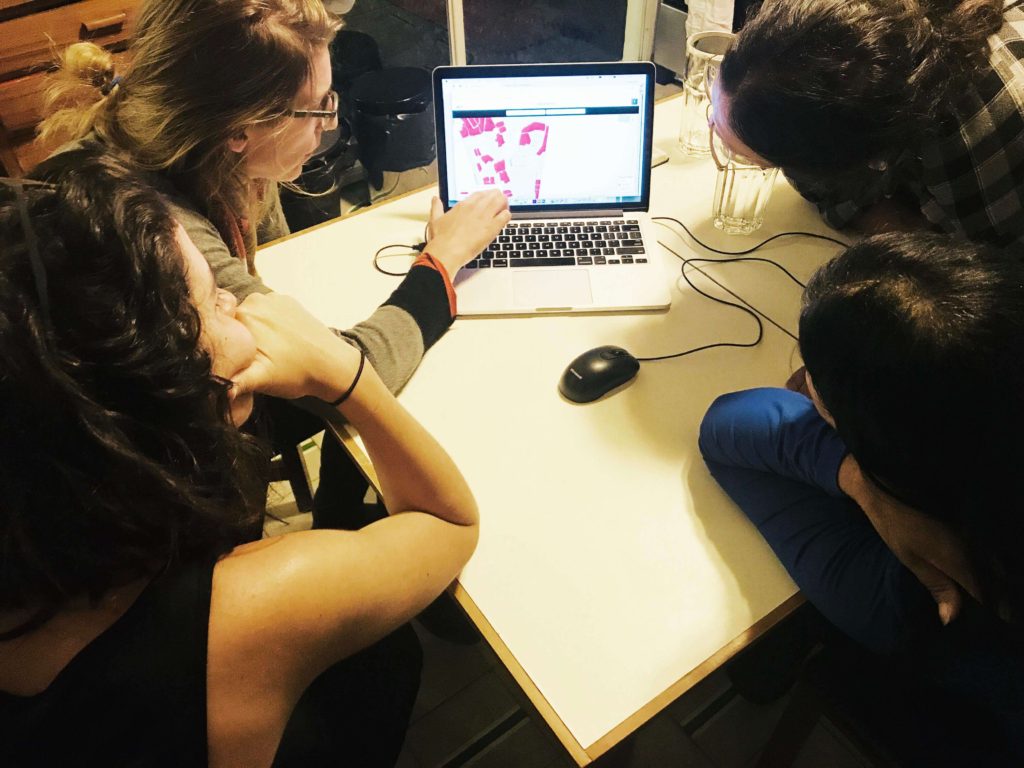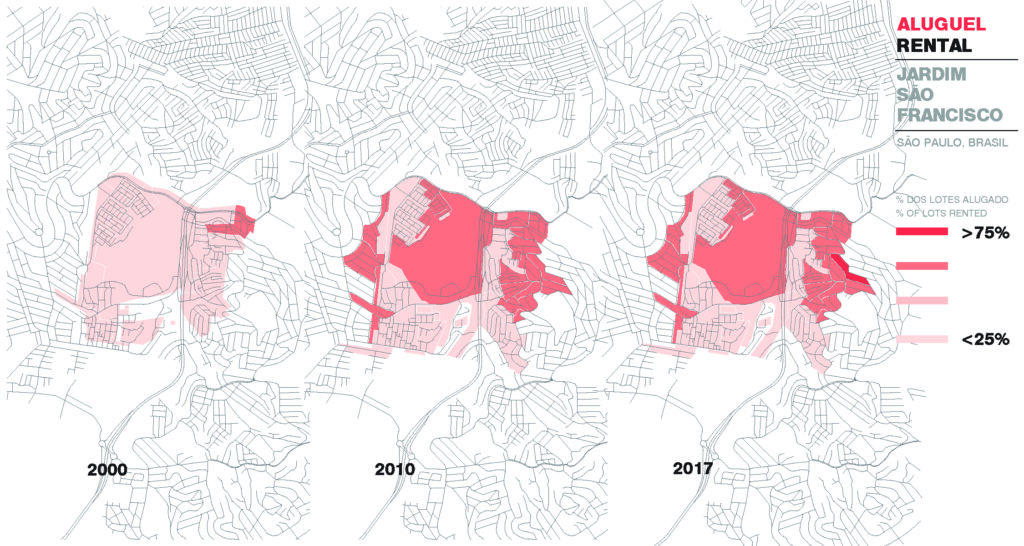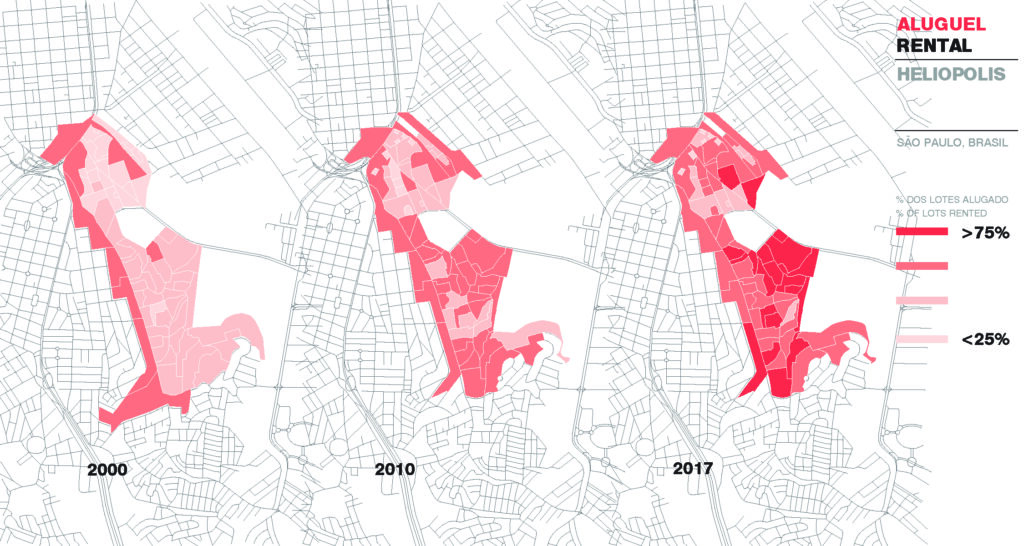CHAPA is a civic data project that participants use to democratize how urban data are collected and visualized, by providing tools and techniques that people may use to participate in urban governance and transformation. CHAPA was founded in 2015 by Kristine Stiphany in the context of a National Science Foundation SBE Postdoctoral Fellowship in São Paulo, Brazil, where methods from the LAHN were applied to a large scale household survey about the impacts of slum upgrading in two large informal settlements, with particular focus on how tenure varies spatially across formal social housing projects and informal, incremental dwelling units that accumulate as neighborhoods are successively upgraded. The project resulted in a comparative data visualization tool called ComuniDADOS, which was constructed by Nathan Brigmon and recognized with an American Planning Association Smart Cities Technology Division Award in 2018.


Recent Project (NSF#15123395): The participatory evaluation of ‘slum upgrading’ in São Paulo
Since the 1980s São Paulo has been upgrading informal settlements, rather than eradicating them. Over the past ten years, housing policy has shifted away from upgrading, and toward the construction of low-income, peripheral mass housing projects. This study examines the impacts of upgrading’s past and uncertain future on residents of informal settlements. This project undertook a study of how slum upgrading projects were distributed across the city to understand their experience by residents in two of São Paulo’s largest informal settlements.
Recent Publication: The rise of informal rental housing in São Paulo
This project examined the rise of informal rental in settlements that have been successively upgraded. It uses the CHAPA study’s micro data to show how rental housing varies spatially within and between the large consolidated informal settlements of Jardim São Francisco and Heliópolis.




